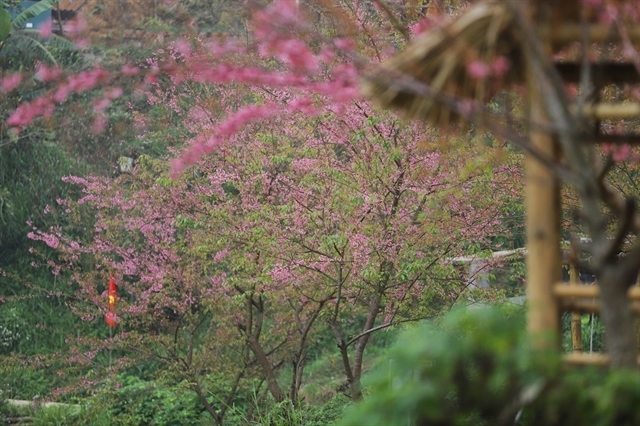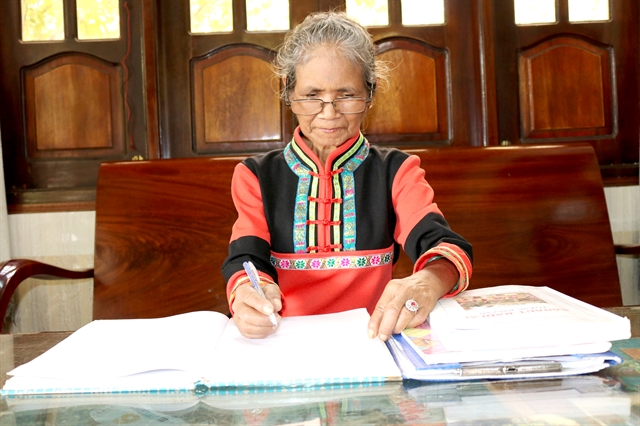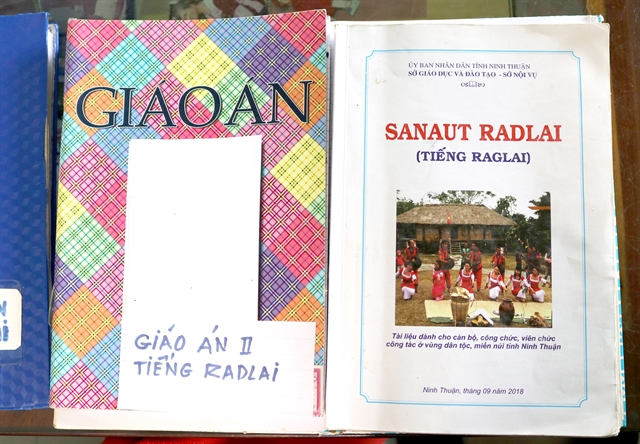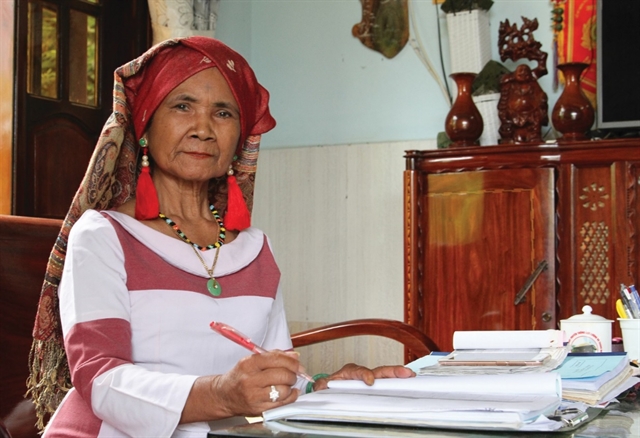 Features
Features

Mẫu Thị Bích Phanh has spent nearly 30 years of her life researching the value of the ethnic Raglai language.

|
| Mẫu Thị Bích Phanh, a researcher from the southern province of Ninh Thuận’s Bác Ái District, has spent nearly 30 years of her life researching the value of the Raglai language. VNA/VNS Photo Nguyễn Thành |
Nguyễn Thành
Mẫu Thị Bích Phanh has spent nearly 30 years of her life researching the value of the ethnic Raglai language.
Phanh, 72, is from the Raglai group in the southern province of Ninh Thuận’s Bác Ái District, and has been collecting information about the language and studying teaching methods to create a written language for the group.
“It also aims to preserve and promote the national cultural identity of the Raglai people,” said Phanh.
Despite her age, Phanh diligently collected many writings, recorded the pronunciation of Raglai and romanised them to facilitate learning.
She is also working hard on developing a curriculum and selecting topics to publish Raglai - Vietnamese bilingual books.
Phanh said as a Raglai member, she is deeply in love with her language but did not have a chance to promote it until 1969.
“It started long long ago. I remember in 1960 when I was 12 years old I got a chance to study for 10 years at a high school called the Central Ethnic Minority School in Hà Nội. Just as I was finishing my studies we were forced to evacuate to the northern mountainous province of Lạng Sơn to avoid the American air war against North Việt Nam," Phanh recalled.
"In early 1969, during the evacuation, I met a reporter from Radio the Voice of Việt Nam, who asked me to translate a news story from Vietnamese into Raglai. The news was about the feelings of southern ethnic students studying in the North,” Phanh revealed proudly about the first time she got the chance to show off her Raglai language skills on national radio.
The woman only returned to Ninh Thuận in 1977 to work in the public health sector.
"Due to my higher education and qualifications, and thanks to my cultural knowledge, particularly of the Raglai language, in 1993 I was invited to work as a translator of Vietnamese-Raglai news programmes at the Ninh Thuận Radio and TV station," Phanh said.
“During my work at the provincial radio and TV station, I realised that the voices and the words were really the souls of every ethnic group. Many groups have their own languages with different scripts, including romanised alphabet.
“Looking back at the Raglai people at that time, I realised we did not have our own script. Meanwhile, the folklore handed down to me was gradually fading through generations, so I decided to use the Latin alphabet to transliterate the Raglai language.”

|
| Teaching materials of the Raglai language written to train officials in the field of ethnic culture in Ninh Thuận Province. VNA/VNS Photo Nguyễn Thành |
Phanh said in order to help people learn Raglai easily and quickly, the script was developed very closely with its Vietnamese counterpart.
However, the most difficult thing was how to retain the characteristics of phonetics while using the Raglai language in expressions, she said.
"The Raglai dialect differs from region to region. It would have been time-consuming to record the pronunciation using the Latin alphabet so I consulted senior language experts and dictionaries. For the words that I did not know, I asked other experienced researchers and local people to complete my own Raglai language self-study documents."
In 2017, the People's Committee of Ninh Thuận Province invited her to compile a Raglai curriculum to teach civil servants and officials who worked in ethnic minority areas.
Phanh worked with other researchers from the Institute of Linguistics to compile and edit a set of words, rhymes and grammar structure from the Raglai phonetic system which was used to design a complete a set of teaching materials known as the Raglai Language Documents.
The teaching material include 10 chapters with 38 lessons written in bilingual Raglai – Vietnamese based on standards set by the Ministry of Education and Training.

|
| Phanh preparing the curriculum for Raglai lessons. Photo baodantoc.vn |
The lessons cover phonetics, words, grammar, writing, listening and speaking skills.
The curriculum follows topics such as family and clan, village, nature and the environment, native culture, people and land, the Party and President Hồ Chí Minh, labour and production, science and education, health care and national defence.
After a period of adjustment, in October 2019, the Ninh Thuận People's Committee officially approved the romanised Raglai script and at the same time worked out a plan to incorporate the Raglai script in cultural and educational activities, making a contribution to preserving and promoting the Raglai culture.
Speaking about the value of the Raglai script, Trần Văn Toàn, head of the Culture and Information Department in Bác Ái District, praised Phanh for her great contribution to the construction of the Raglai script.
“From a cultural perspective, a group will develop sustainably if it has its own language. Words convey the thoughts and sounds. Folklore handed down by memory can be expressed and recorded in words and writings, and thus be preserved and promoted with their cultural identity. Phanh has contributed to that,” the official said.
Toàn said the writing system that Phanh had helped build would help cultural managers and researchers access the Raglai culture more easily.
In addition to teaching in secondary and high schools, Phanh is continuing her work on collecting epic stories, music, traditional expressions and lullabies of the Raglai to add to her books.
The ethnic researcher was awarded a Certificate of Merit by the provincial People's Committee in recognition of her outstanding achievements in the compilation of ethnic Raglai language documents in 2018.
Last year, she was again honoured by the State President and received the title Meritorious Artist in the field of intangible cultural heritage. The title was also in recognition of her great work in developing the spoken and written language of the Raglai people. VNS




